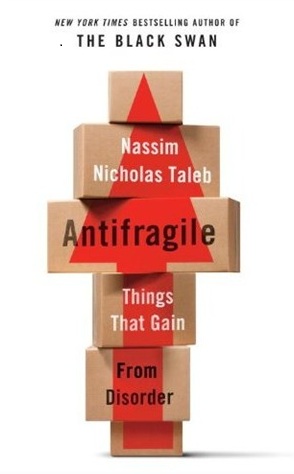The Goal Is Antifragile
Some of you may remember the book, “The Black Swan,” that I have written quite a few blogs on in the past. The reason I have shared from Nassim Taleb often is his philosophical thinking about the world and investing is so insightful and unique that it makes for serious contemplation about the world in which we live.
Well, Taleb has done it again. He has written a new book that is just starting to sink in and open my eyes to the implications of his thinking. The book is “Antifragile: Things That Gain from Disorder.” Here Taleb presents to us that things will get more stable and stronger when they have ongoing shock and turmoil, compared to things that are breakable or fragile. That the antifragility of some comes at the expense of the fragility of others.
This happens in the biological world where some parts of the inside, like within a cell, may need to be fragile for the large structure to be antifragile. Taleb uses the example of restaurants in the book, saying that each one is fragile in that they come and go – they compete and go out of business regularly. The local restaurant collective is antifragile with its system providing quality, whereas central control, Soviet-style cafeteria food would be the alternative.
Fragile type systems depend on everything be exact and a planned course. If you have deviations, they are more harmful, so this needs to be more predictive in its approach. The opposite holds true for antifragile, where you don’t worry about deviations and the possible different outcomes that may occur as you move forward.
When you see the world through this lens, it helps put perspective on what works and doesn’t work. This would mean not bailing out on the things that don’t work, and not relying on permanent administrations and forecasting departments that think they can predict the future.
How do you help yourself to become more antifragile? You learn to love mistakes. When you make them a lot, but at a level that is small and reversible instead of large and destructive, you put yourself in a situation to evolve and stay alive. What you may consider is the random aspect of trial and error, is not so random if it is carried out in a rational approach, because the error is used as information.
For the entrepreneur out there, Taleb’s work has a lot of implications for your strategy and thinking in how you approach your competitors, market place and the world in which you live. I will get into that more in future blogs.
As I’m sure you have noticed, we have changed the blog over to a new format, so it will look a little different to you. Thanks for reading.